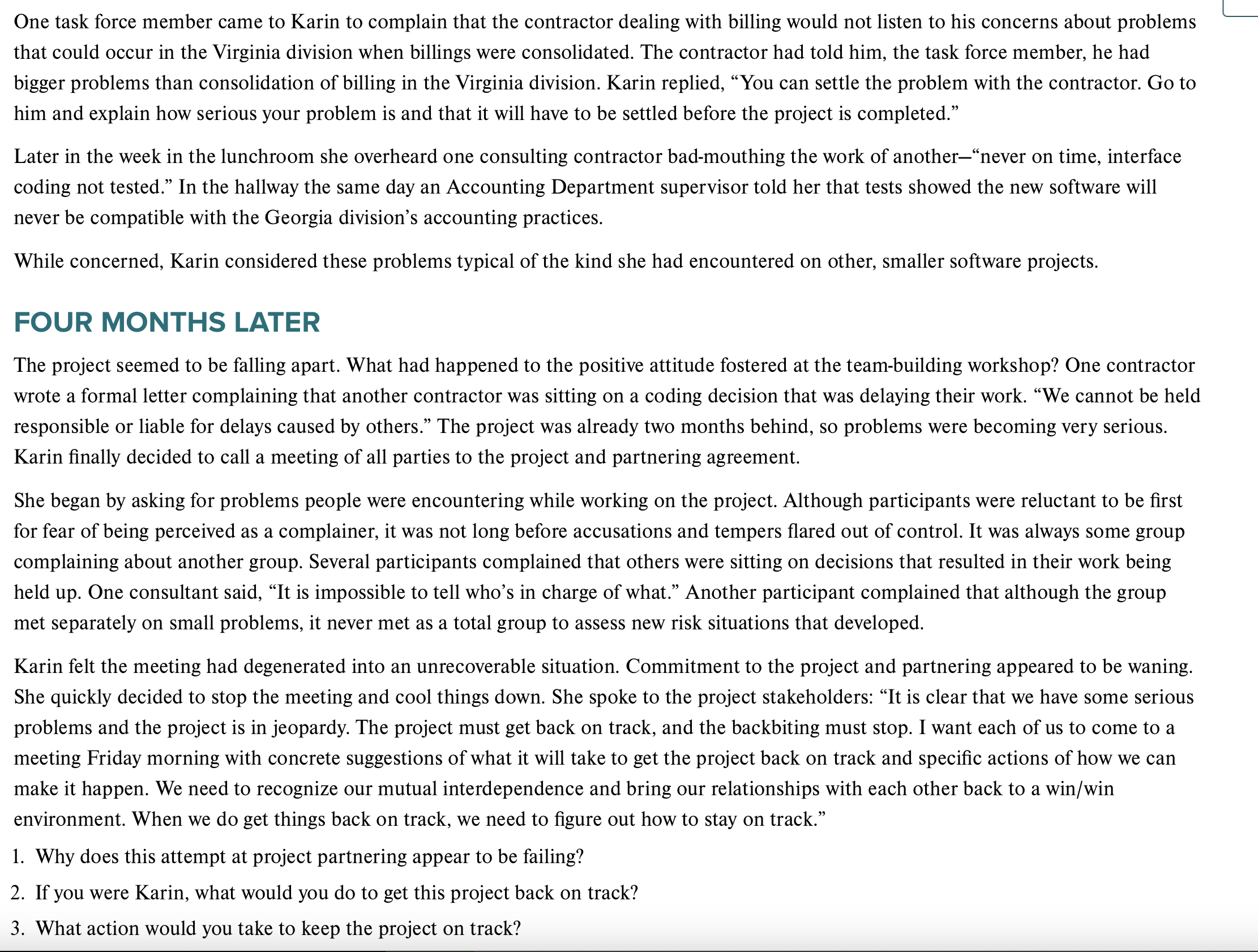Answered step by step
Verified Expert Solution
Question
1 Approved Answer
One task force member came to Karin to complain that the contractor dealing with billing would not listen to his concerns about problems that could
One task force member came to Karin to complain that the contractor dealing with billing would not listen to his concerns about problems
that could occur in the Virginia division when billings were consolidated. The contractor had told him, the task force member, he had
bigger problems than consolidation of billing in the Virginia division. Karin replied, "You can settle the problem with the contractor. Go to
him and explain how serious your problem is and that it will have to be settled before the project is completed."
Later in the week in the lunchroom she overheard one consulting contractor badmouthing the work of another"never on time, interface
coding not tested." In the hallway the same day an Accounting Department supervisor told her that tests showed the new software will
never be compatible with the Georgia division's accounting practices.
While concerned, Karin considered these problems typical of the kind she had encountered on other, smaller software projects.
FOUR MONTHS LATER
The project seemed to be falling apart. What had happened to the positive attitude fostered at the teambuilding workshop? One contractor
wrote a formal letter complaining that another contractor was sitting on a coding decision that was delaying their work. We cannot be held
responsible or liable for delays caused by others." The project was already two months behind, so problems were becoming very serious.
Karin finally decided to call a meeting of all parties to the project and partnering agreement.
She began by asking for problems people were encountering while working on the project. Although participants were reluctant to be first
for fear of being perceived as a complainer, it was not long before accusations and tempers flared out of control. It was always some group
complaining about another group. Several participants complained that others were sitting on decisions that resulted in their work being
held up One consultant said, It is impossible to tell who's in charge of what." Another participant complained that although the group
met separately on small problems, it never met as a total group to assess new risk situations that developed.
Karin felt the meeting had degenerated into an unrecoverable situation. Commitment to the project and partnering appeared to be waning.
She quickly decided to stop the meeting and cool things down. She spoke to the project stakeholders: It is clear that we have some serious
problems and the project is in jeopardy. The project must get back on track, and the backbiting must stop. I want each of us to come to a
meeting Friday morning with concrete suggestions of what it will take to get the project back on track and specific actions of how we can
make it happen. We need to recognize our mutual interdependence and bring our relationships with each other back to a winwin
environment. When we do get things back on track, we need to figure out how to stay on track."
Why does this attempt at project partnering appear to be failing?
If you were Karin, what would you do to get this project back on track?
What action would you take to keep the project on track?

Step by Step Solution
There are 3 Steps involved in it
Step: 1

Get Instant Access to Expert-Tailored Solutions
See step-by-step solutions with expert insights and AI powered tools for academic success
Step: 2

Step: 3

Ace Your Homework with AI
Get the answers you need in no time with our AI-driven, step-by-step assistance
Get Started


